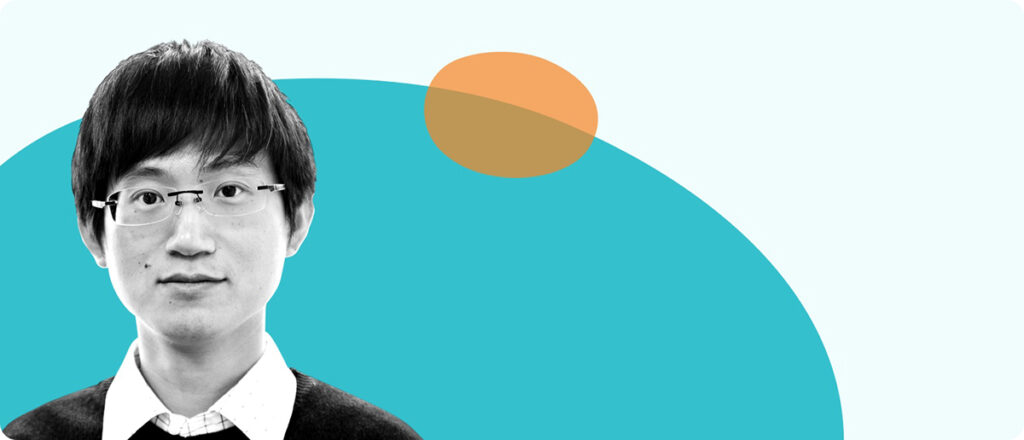
T cells often can’t fight cancer alone, which is why researchers turn them into CAR T cells as a more powerful ally for the immune system. What if there was a way to “supercharge” CAR T cells even more?
This approach is being turned into a potential therapy by Sidi Chen, PhD, an Alliance for Cancer Gene Therapy Research Fellow funded by Swim Across America.
Dr. Chen is an associate professor of genetics at Yale University School of Medicine. He and his laboratory published findings in the journal Cell Metabolism highlighting an approach to selectively target specific T-cell genes for a more potent CAR-T treatment.
Dr. Chen’s hope is to target genes linked to stronger and longer attacks on cancer. If he and his laboratory team of researchers can find one or two All-Star cancer-fighting genes, then doctors can improve CAR T-cell therapy by selecting T cells with high expression of this gene or adding the gene to the T cells.
Defining the role of CAR T cells
T cells serve as the soldiers of the immune system. They look for intruding viruses and infections. T cells are supposed to ward off cancer, but they often struggle to recognize cancer cells as dangerous. T cells face this challenge because cancer cells were once healthy and still possess many of the characteristics of healthy, harmless tissue. Cancer also manipulates the surrounding microenvironment to hide from the immune system and make immune cell infiltration difficult.
CAR T-cell therapy, a type of cancer cell and gene therapy, is recognized as a powerful novel approach to defeating cancer by helping the immune system. Doctors remove the T cells from the patient, adding a chimeric antigen receptor (CAR) with an antigen target unique to the cancer cells, and adding the upgraded T cells back into the body.
Six CAR T-cell therapies are approved for various blood cancers, including types of leukemia and lymphoma. The FDA has yet to approve a CAR T-cell therapy for solid tumors, although there are many new therapies being tested in clinical trials.
One significant roadblock is developing a therapy strong enough to endure a long fight against solid tumor cancer cells. Many CAR T cells experience a phenomenon called “T-cell exhaustion” where they tire out and become less effective the longer they’re in battle with cancer cells.
Gene targeting for CAR T-cell engineering
Dr. Chen and his research partners used a CRISPR activation screen, which tests the gain and loss of gene function. This technology helps identify genes that are more energetic than others against a specific cancer.
Dr. Chen reported PRODH2, a gene involved in CD8+ T-cell metabolism, as a valuable target for enhancing CAR T cells via gene therapy. CD8+ T cells are main type of T cell used for CAR-T treatment.
“We developed a new kind of genome-wide gain of function screen to find a molecular enzyme that acts like a foot on a gas pedal to increase metabolic activity in T cells.” — Sidi Chen, PhD, Alliance for Cancer Gene Therapy Research Fellow
Dr. Chen’s laboratory tested increasing PRODH2 expression and using T cells with high levels of this gene to create CAR T cells. When piloted on mouse models with three different cancers – including the solid-tumor breast cancer – the results were positive.
Dr. Chen’s cell and gene therapy research
Dr. Chen is one of the brightest minds in cancer therapy and research. He received grant funding in 2020 from Alliance for Cancer Gene Therapy to investigate a new genetics-based approach to immunotherapy.
Dr. Chen’s proposal was MAEGI, an acronym for Multiplexed Activation of Endogenous Genes as an Immunotherapy. The concept is to activate specific genes in each person to fight cancer.
“It’s like having an entire search party instead of just one guy with a flashlight,” Dr. Chen says of MAEGI.
Dr. Chen is applying the MAEGI approach to pancreatic cancer, one of the funding targets of Alliance for Cancer Gene Therapy. The Alliance’s support of Dr. Chen’s work and his research to improve the metabolic function of CAR T cells will lead to breakthroughs in the hardest-to-treat solid tumors.
“By understanding the biology of cancer at the cellular and molecular levels, cancer researchers have learned a lot about how cancer thrives, which has revealed opportunities for how it can be stopped.” — Dr. Chen
The Alliance will continue funding unprecedented, inventive research programs like Dr. Chen’s proposal. Putting these theories into practice is how our alliance of donors, patients, researchers, doctors and survivors will uncover cures for many difficult-to-treat cancers.
Your donation to Alliance for Cancer Gene Therapy is the lifeblood that allows us to continue supporting brilliant researchers. Please donate today to make a difference in the fight against cancer. Sign up for ACGT’s email list to receive the latest news in cancer cell and gene therapy.
Page sources
- Yale scientists ‘supercharge’ cancer-fighting T cells. Yale News. Retrieved from: https://news.yale.edu/2022/03/10/yale-scientists-supercharge-cancer-fighting-t-cells. Accessed: 03/11/2022.
- A genome-scale gain-of-function CRISPR screen in CD8 T cells identifies proline metabolism as a means to enhance CAR-T therapy. Cell Metabolism. Retrieved from: https://www.cell.com/cell-metabolism/pdf/S1550-4131(22)00053-5.pdf. Accessed: 03/11/2022.



